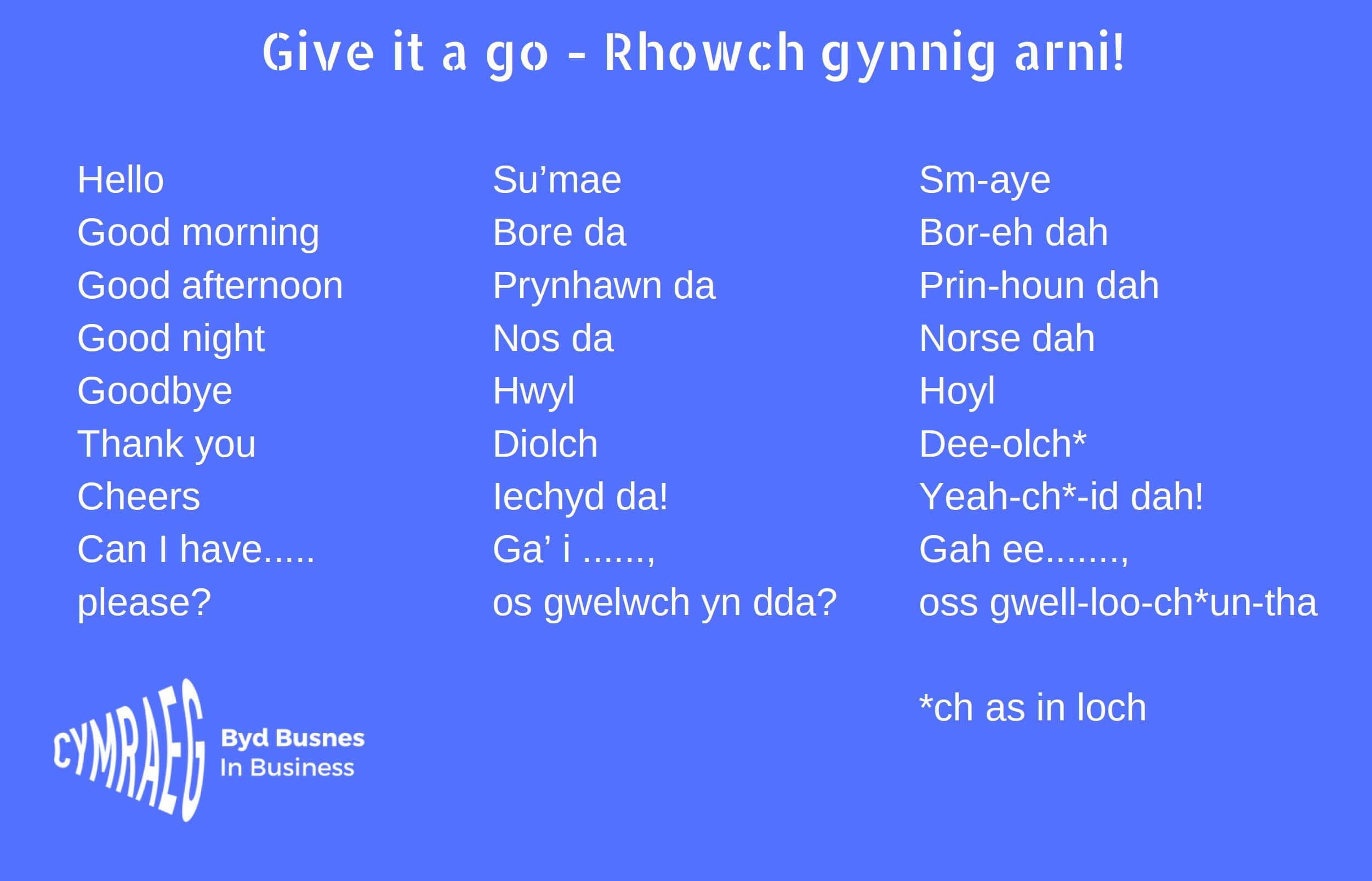Good morning/Good afternoon everyone! (Bore da/Prynhawn da). Today we have something very special for you. It is the first in a series of handy little guides to help you with some basic Welsh phrases.
The first column includes the English words, the second column is the translated Welsh words, and the third column is to help you with the correct pronunciation. So, why not give it a go and impress your friends, family or even work colleagues with your new knowledge!
We will be adding new words and phrases for a variety of different categories soon. This will help you to learn the amazing Welsh language… Watch this space!

A Brief History of Welsh – Introduction
Firstly, Cymraeg, or Welsh, is a language native to the British Isles, originating from a Celtic language spoken by the ancient Britons. Throughout its history, it has faced numerous challenges to its existence.
Welsh is a Brythonic language, meaning British Celtic in origin and spoken in Britain even before the Roman occupation. Thought to have arrived in Britain around 600 BC. The Celtic language evolved in the British Isles into a Brythonic tongue which provided the basis not only for Welsh, but also Breton and Cornish. In Europe, Celtic languages are spoken across the continent even as far as Turkey.
The Welsh Language Society
Secondly, in the 19th century, the Welsh language did not benefit from the increasing literacy levels amongst the general public. Moreover, whilst children were attending school, Welsh was not part of the school curriculum. English was still the dominant language as it represented administration and business in an era of imperial expansion.
In the 20th century, there was a growing recognition that Welsh speakers were being discriminated. In 1942 the Welsh Courts Act addressed the issue of defendants and plaintiffs being forced to speak in English. They made a new law allowing Welsh to be spoke in the courts.
By 1967, a very important and crucial piece of legislation was introduced thanks to the campaigning of many individuals. This including Plaid Cymru and also the Welsh Language Society.
This legislation is largely modelled on the Hughes Parry Report from two years earlier. This stated that Welsh should have equal status to English in the courts.
This was a pivotal moment when the prejudices ushered in during the Tudor period began to be reversed. Today the Welsh language is used; at home, in the workplace, in the community and also in the government. In the 2011 census, over 562,000 people named Welsh as their main language.
Finally, to learn more Welsh phrases view The Welsh Gift Shop website here.
Also, to view our other Welsh words click here.

